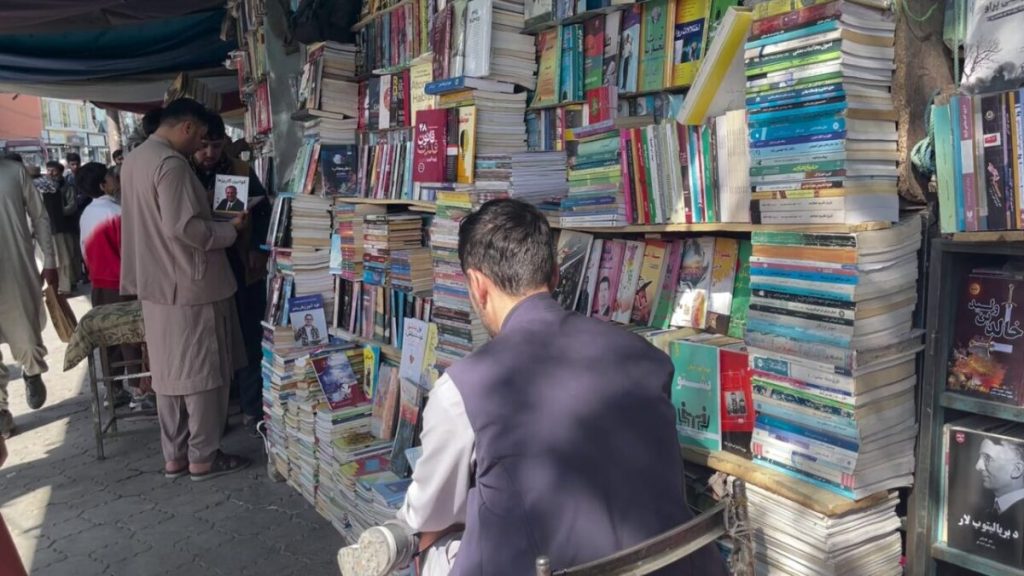The Taliban government in Afghanistan is removing books that they say go against Islamic and Afghan values. A special commission formed by the Taliban has made a list of 400 books they consider “un-Islamic.” These books are being taken from stores, libraries, and public spaces across the country.
A local government official in Herat province and a bookseller told AFP that authorities have not yet visited every bookstore to check for banned books. However, they are actively removing certain books from circulation. The Taliban is also checking books that have been imported into the country, ensuring that anything “contradictory to Islamic teachings” is removed.
The commission was set up after the Taliban took control in 2021. It is part of their efforts to impose their strict interpretation of Islamic law, also known as sharia. In October, the Ministry of Information and Culture announced that they had identified 400 books that “conflicted with Islamic and Afghan values.” Most of these books had already been taken from the markets, according to the ministry.
Along with removing books, the Taliban has been replacing them with Islamic texts. Copies of the Holy Quran and other religious books have been distributed to replace those that were removed. While the exact number of books removed has not been shared, sources say that many books were taken in the first year of Taliban rule. More books have been collected in recent months.
One publisher in Kabul said that censorship has become much stronger under the current government. “It’s very difficult to work, and fear has spread everywhere,” the publisher told AFP. They added that while books were also restricted under the previous government, there was not the same level of fear. People could speak freely and express their opinions, even if there was corruption.
In the 1990s, during the Taliban’s first rule, there were fewer bookstores in Afghanistan. But today, many books are imported into the country, especially from neighboring Iran. Thousands of books are brought in every week through the Islam Qala border crossing in Herat. Recently, Taliban officials searched shipments at a customs warehouse in Herat. They examined books for images of living creatures and other content that might be seen as inappropriate.
“We don’t ban books from any specific country or author,” said Mohammad Sediq Khademi, an official with the Herat department for Propagation of Virtue and Prevention of Vice. “We only remove those that go against our beliefs, sharia, or government rules.” Under the new laws, books with pictures of living things are not allowed. These rules are based on a law passed by the Taliban that restricts images, particularly of humans and animals.
Booksellers have been warned about which books to avoid. If a shipment contains books that are not acceptable, the importer is given the chance to return them for a refund. If that’s not possible, the books are seized by the authorities. In one instance, 28 cartons of books were rejected.
Although the Taliban has not visited every bookstore to check for banned books, some books have already been removed from shelves in Herat and Kabul. One bookseller in Herat said that books like “The History of Jihadi Groups in Afghanistan” by Yaqub Mashauf were taken from his shop. However, books that still contain images of living creatures are still available in some stores.
In Kabul and Takhar, many banned books remain on the shelves. Some booksellers said that if the author is foreign, the book is likely to be banned. Despite this, some non-Afghan works are still for sale. One seller in Kabul is even selling Russian author Fyodor Dostoyevsky’s novel “The Gambler” and the fantasy novel “Daughter of the Moon Goddess” at a very low price to clear out stock.
The Taliban’s censorship efforts are far from over. They are actively working to remove any literature they see as harmful to their interpretation of Islam and the government’s authority. As the Taliban continues to exert its control over Afghanistan, more books could be added to the banned list.


